
Take it from someone who knows: Acne is a tricky, tricky thing. It can be a journey to pinpoint exactly what’s causing your breakouts, but as of late, there’s more of a conversation around underlying factors that could lead to them besides hormones. By now, you may have heard of the gut-skin axis, the direct connection our skin shares with the health of our digestive system. According to naturopathic doctor Bryant Esquejo, ND, “scientists have found that what happens in the gut is linked to skin issues like acne, eczema, rosacea, and more. Regarding acne, [they’ve] found that acne is linked to several gut issues, like irritable bowel syndrome (IBS), peptic ulcers, constipation, and more.”
That definitely frames your breakouts in a different light, doesn’t it? On my own acne journey, I realized that my breakouts weren’t really caused by products and hormones. They’re linked to the somewhat elusive gut-skin axis like Esquejo suggests. Going with this line of thinking, it’s easy to see why using probiotic supplements to encourage skin clarity has emerged as a trend in the past few years. Can certain probiotic strains actually clear up your breakouts then? I picked Esquejo’s brain for his expert insight on the topic. For everything he shared, keep reading.
The Link Between Skin Conditions and Gut Health
Interestingly enough, Esquejo says that gut imbalances aren’t just linked to acne. In recent years, scientists have found certain gut issues to be linked to other skin conditions like eczema and rosacea. It’s all connected—he even says things like your, ahem, level of regularity could be telling you something important.
Esquejo says, “Scientists found that people with acne are more likely to have fewer beneficial gut bacteria compared to people without acne. Researchers in 2020 also found that acne is linked to a stomach bacteria called helicobacter pylori, and interestingly, what we know about these gut-microbiome findings is that some of them may play a role in the gut issues listed [earlier].”
As for eczema, scientists found in 2021 that it’s linked to other gut issues like constipation. According to the study, “constipated people had a 2.31-fold greater risk of [eczema] compared with those without constipation.” Esquejo also notes that data from a 2014 study about gut bacteria and eczema showed that lower gut bacteria diversity is inversely linked to eczema severity. Rosacea, on the other hand, has also been linked to small intestinal bacterial overgrowth.
I’d heard from other wellness experts that gut-microbiome diversity is key to maintaining a healthy digestive system, but apparently, according to the above research, that means it’s also key in maintaining skin health. As more research about this comes out, it will be interesting to see if more probiotic therapy is released to specifically target acne.
Can the right probiotic actually solve your skin struggles?

As I mentioned above, I struggled to pinpoint what the source of my acne was. That was until I found the right probiotic for me. Trust me—that took a lot of trial and error. There are so many different strains of probiotics out there that it’s tough to know which strain is the right one for your particular gut and skin issues. It isn’t impossible to find the right one on your own, but it is easier if you consult a naturopathy professional like Esquejo, a gastroenterologist, or a functional-medicine expert to help you determine whether gut issues are causing your breakouts.
The probiotic that got me on the right track (along with the right skincare) was Microbiome Labs’ MegaSporeBiotic ($59). I noticed an improvement in my skin after three months. I had such a positive experience that I had to ask Esquejo if he thinks probiotics could be a tangible solution for acne, but he said to slow my roll—there are mixed opinions and studies when it comes to this topic.
“When reviewing the body of research, studies on probiotics and acne are varied,” Esquejo says. “A 2019 review showed that different probiotic strains are used across studies, with some strains promoting the skin. Due to this variability in research and the wide-ranging claims made by different companies, I recognize that it can be incredibly confusing for many who are navigating probiotics on their own. While researchers found that some probiotic strains could be supportive, I’ve also heard from many individuals who’ve tried probiotics for their skin and said they didn’t notice any improvement. Why is that? As mentioned earlier, acne is linked to fewer beneficial bacteria, but it’s also linked to H. pylori in the stomach. While probiotics may replenish beneficial bacteria, it’s often unclear which specific strains are depleted, making it hard for most to know which probiotic to take. Not knowing what strains are depleted may explain why some people report seeing no improvement when taking a general probiotic. Additionally, probiotics alone aren’t enough to address issues like H. pylori, which typically needs heavier-duty approaches.”
While the gut-skin axis can play a major role in the health of your skin, Esquejo says not to discount other factors like blood sugar and hormones. He also shares that a holistic approach to healing acne should always start with a comprehensive intake with a medical provider—that’s the best way to discern what exact factors could be behind your acne.
How to Support the Gut-Skin Axis
That being said, Esquejo’s key advice is to keep up with what’s going on with your gut microbiome. “Lab testing provides insights that help identify personalized solutions for someone’s gut-skin axis,” he explains. “With that information, people can determine whether a probiotic is appropriate or if another approach is needed. There are many gut-microbiome tests nowadays, such as with conventional testing and functional tests, which can all be overwhelming for people. Because of the different options, I feel that it’s important that people consult their medical provider to explore which testing options are best suited to their individual needs.”
Another factor I had to look at was my diet. I thought I was eating “healthy” by getting a meal delivery service, only to realize that those meals were loaded with more refined sugar and heavy carbs than what I was eating previously. Esquejo actually says that researchers suggest the Western diet may impact both acne and the gut microbiome. “The Western diet is generally described as a diet that is high in ultra-processed products, fat, sugar, and refined grains and low in fiber, fruits, and vegetables,” he says. “In a systematic review published in JAAD International, researchers concluded that certain elements of the Western diet, like high-glycemic foods and dairy, are pro-acnegenic. Other foods like dairy may trigger hormone responses that underpin acne. Additionally, a 2018 study found that people with acne have gut-microbiome imbalances that closely resemble those seen in people who follow a Western diet, which is marked by a reduction in beneficial gut bacteria.”
Obviously, this is a lot to digest (no pun intended), but it’s definitely something to think about if you’ve found that every topical acne treatment under the sun doesn’t work for you. I now follow the Mediterranean diet, a plant-based diet that includes a lot of fruits, vegetables, whole grains, and nuts. It isn’t always easy to change your lifestyle, but doing so can make huge positive changes in your skin. Esquejo suggests other foundational gut support like increasing dietary fiber, eating 30 or more different edible plants per week (fruits, vegetables, whole grains, nuts, and seeds), and increasing dietary prebiotics.
Probiotics and Other Products That Can Support Skin Health

Sometimes, changing your diet isn’t enough, and that’s when Esquejo suggests probiotics and other support to his patients. “It should be noted that there are instances when these foundational approaches are not enough to address the gut-skin axis, which is another reason why lab testing is crucial,” he says. “While they help build a steady foundation, these foundational approaches are realistically not enough for some gut issues, like H. pylori. Once lab results are received, there are several approaches that can be added on top of foundational gut support to target specific imbalances detected in those labs.
“Ultimately, I aim to empower my patients with education about standard medical treatments and natural alternatives so that they can have the full picture and can make the best decision for their health. Given all of that, it should be noted that it’s important that people struggling with acne should consult their doctor before starting anything new to learn what’s safe and worthwhile for their acne and their personal health and wellness. Regarding the gut-skin axis, there are many supplements I have suggested to my patients that address gut-microbiome imbalances detected in lab testing. Based on lab results, I may suggest supplements such as targeted probiotic strains, prebiotics, specific herbal extracts, or other supportive options tailored to my patient’s individual needs.”
Below are a few products I’ve found helpful on my own skincare journey and a favorite of Esquejo’s for acne-prone skin.
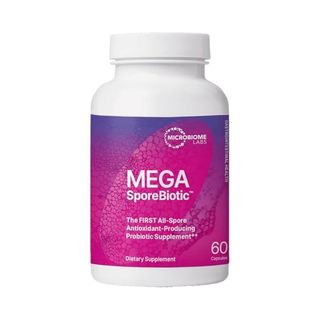
Microbiome Labs
MegaSporeBiotic
I’m definitely going to preface this by saying that not every probiotic will be the right one for everyone, as Esquejo said. It’s a good idea to get lab testing done to figure out your own gut imbalances, and this probiotic was suggested to me by my acupuncturist. It’s worked wonders for my gut health and has, in turn, improved my skin a lot. It’s designed to recondition the entire gut microbiome and promote microbiome diversity. It did take a few months to start producing some positive results, but I noticed a huge decrease in bloating and breakouts after that. It is a pricier option, but I think it’s worth it for a healthier gut-skin axis.
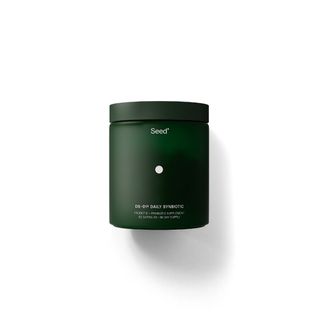
Seed
DS-01 Daily Synbiotic
Seed is another popular probiotic option that’s filled with both probiotics and prebiotics that claim to support immune function, gut-barrier integrity, and skin health. This supplement is also designed to survive digestion, which is hard to come by in a probiotic.
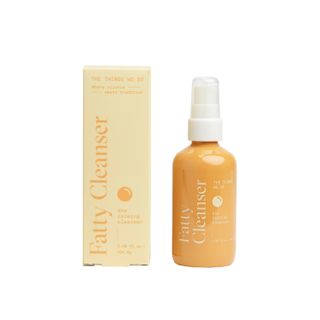
The Things We Do
Fatty Cleanser
Esquejo also believes in supporting the skin directly with a solid skincare routine. He has acne-prone skin himself and loves this new cleanser from The Things We Do. “Recently, I’ve been using a new cleanser that my friend and colleague Vanessa Lee, RN, recently launched called the Fatty Cleanser, which my skin has been loving,” he says. “Beyond those, I also use a ceramide-based moisturizer and sunscreen to promote my skin barrier’s resilience while I continue to use a topical retinoid.”
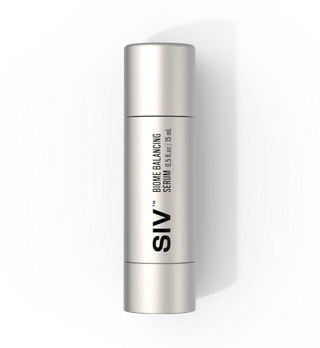
SIV
Biome Balancing Serum
SIV offers another spore-based probiotic, but this time, it’s for your face. I recently started using it and have found that it helps keep my skin calm, clear, and hydrated. Similar to your gut, your skin has its own unique microbiome of bacteria, and this serum is designed to adapt to your specific problem areas.
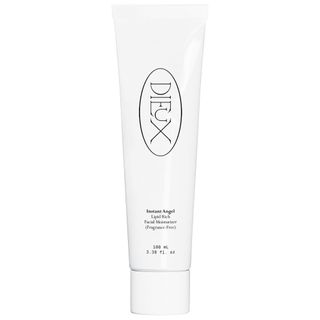
Dieux
Instant Angel Lipid & Peptide-Rich Moisturizer + Barrier Repair
This is a richer moisturizer that helps reinforce the skin barrier if you use stronger actives, and I’m absolutely obsessed with it. It keeps my skin velvety soft and hydrated throughout the day without causing any new breakouts.
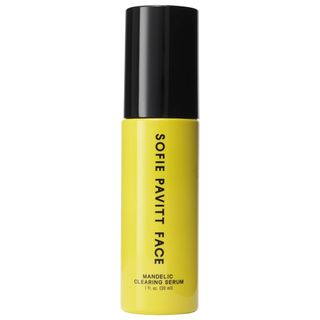
SOFIE PAVITT FACE
Mandelic Acid Exfoliating & Clearing Serum
I’ve never come across a product that has single-handedly changed my skin more than this one. My skin is crazy sensitive and borderline reactive, so it’s hard to find exfoliants that work for it without causing more irritation. Sofie Pavitt Face’s Mandelic Clearing Serum calms and clears breakouts without causing additional redness or making my skin dehydrated.
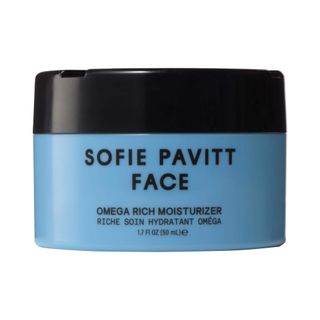
SOFIE PAVITT FACE
Omega Rich Moisturizer
Another thing that’s hard to come by? The right moisturizer for acne-prone skin. Pavitt honestly just gets it and created this omega-rich moisturizer with acne-prone skin in mind. It provides the right amount of hydration without causing any new breakouts.
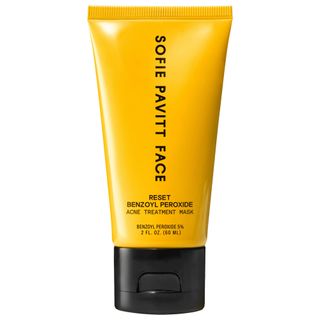
SOFIE PAVITT FACE
5% Benzoyl Peroxide Acne Treatment Mask With Glycolic Acid
This is one of the only spot treatments I truly love. Normally, I tend to stay far away from benzoyl peroxide because it irritates my skin, but once again, Pavitt is a true wizard and knows the exact percentage of ingredients to combine to create magic. You can use this as a face mask, but I stick to treating spots with it twice daily until they go away.
This article is provided for informational purposes only and is not intended to be used in the place of advice from your physician or other medical professionals. You should always consult your doctor or healthcare provider with any health-related questions.

